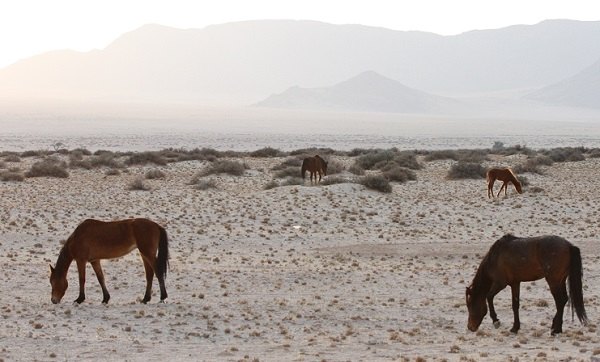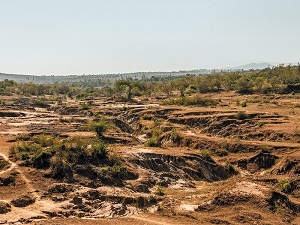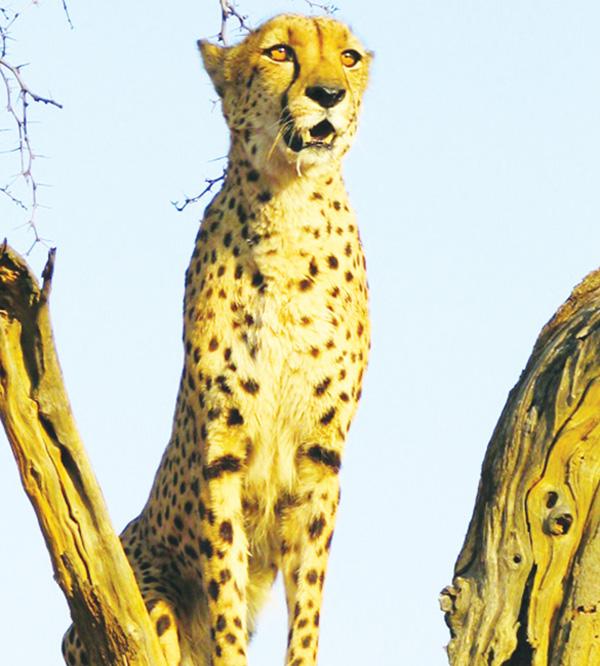
Environment ministry drafts action plan to protect wild horses of the Namib

Conditions for the wild horses in the Tsau //Kheib National Park have taken a turn for the better with improved grazing and no recorded predation since February this year.
The private organisation who alerted the public of the serious threats against the horses, the Namibia Wild Horses Foundation, said this week in a statement that the Ministry of Environment and Tourism has drafted a preliminary action plan to manage the horses.
This includes interventions to minimise predation by hyenas and a re-zoning of the Garub area where the horse occur, to a multi-use area to enable more effective solutions.
In the meantime, some late summer rains and a spite of recent winter rain have improved the grazing around Garub, giving the horses a better chance of survival without the need for supplementary feed, which was the case at the beginning of the year.
After consultation with the ministry, the foundation stated that is has been resolved that the horse are a state asset and will be managed by the ministry. The ecological and tourism value of the horse have also been recognised officially.
Currently there are only 72 horses left of the 300 horses that used to roam the Garub area. The troupe now comprises 40 stallions, 31 mares and one filly named Zohra, the only surviving foal of the past six years. However, several of the mares are pregnant and the new offspring is expected to start arriving in the spring.
“While it has been made clear the state will not relinquish custodianship of the horses, [the foundation] welcomes the actions the ministry has taken in drawing up an action plan for the Garub horses as crisis management decisions have proven to be detrimental to other species, especially the resident hyena,” stated the foundation.












































